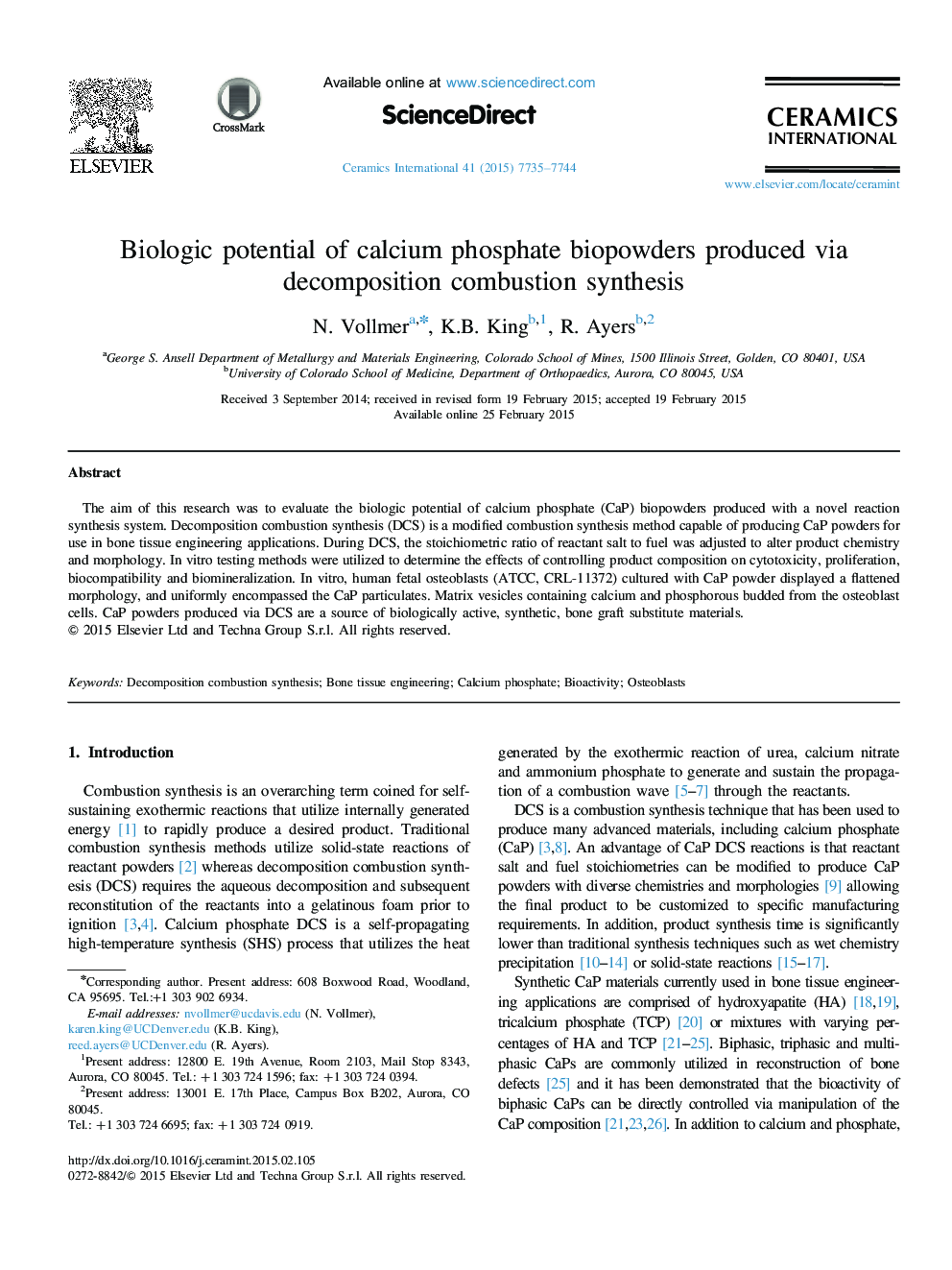| Article ID | Journal | Published Year | Pages | File Type |
|---|---|---|---|---|
| 1459777 | Ceramics International | 2015 | 10 Pages |
The aim of this research was to evaluate the biologic potential of calcium phosphate (CaP) biopowders produced with a novel reaction synthesis system. Decomposition combustion synthesis (DCS) is a modified combustion synthesis method capable of producing CaP powders for use in bone tissue engineering applications. During DCS, the stoichiometric ratio of reactant salt to fuel was adjusted to alter product chemistry and morphology. In vitro testing methods were utilized to determine the effects of controlling product composition on cytotoxicity, proliferation, biocompatibility and biomineralization. In vitro, human fetal osteoblasts (ATCC, CRL-11372) cultured with CaP powder displayed a flattened morphology, and uniformly encompassed the CaP particulates. Matrix vesicles containing calcium and phosphorous budded from the osteoblast cells. CaP powders produced via DCS are a source of biologically active, synthetic, bone graft substitute materials.
